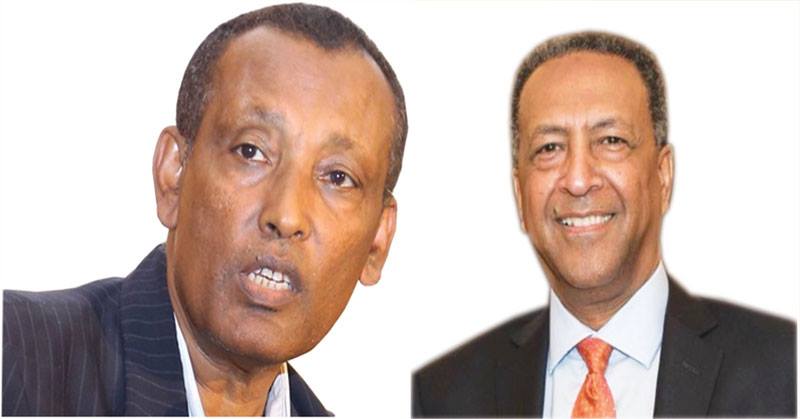
BY ZELALEM GIRMA Having a stock market exchange is the panacea for escalating the capital market and can be considered as one of the economic sectors demanding a reform, economists say.
Of late, PM Abiy Ahmed announced in Parliament that Stock Exchange will be launched in Ethiopia as part of the privatization of big state owned companies Telecom, Electric Power, Airlines, Shipping and Logistics, and Sugar projects among others. Approached by The Ethiopian Herald, economic experts say it is a major and timely decision which has been waiting for a couple of decades.
Dr. Atlaw Alemu, Head of Economics Department at Addis Ababa University, says that the establishment of a stock market in Ethiopia would enable local companies to raise their capital, make huge investments and create job opportunities. The establishment of stock market is significant to mobilizing domestic savings and huge capital, settling budgetary gap for financing huge national projects, enhancing access to equity finance for the private sector, and promoting rapid economic development as a whole, Dr. Atlaw highlights. In this regard, Zemedneh Negatu, Chairman, Fairfax Africa Fund (U.S) tells that Ethiopia is at the moment one of the largest economies in Africa with no stock market.
It is the time to establish a stock market that could give a boost to the fast growing economy of the country, he adds. “One of the benefits of having stock exchange or a regulated capital market is to provide fuel for the growth of the private sector and upsurge foreign direct investments in this country.” According to Zemedneh, the Ethiopian economy has gone forward with a private sector led economy.
The Government is now encouraging the private sector to take more of the leadership in the economic sector, Zemedneh confirms. For instance, as a car engine would not move without fuel, so the private sector cannot grow without capital that would boost the exchange of market. In fact, stock market has already been created in Ethiopia by large companies, but not thus far regulated. As a case in point, there are hundreds of thousands of shareholders in the 16 private Banks in Ethiopia. Yet, their capital is tied up and doesn’t move around in a regulated and transparent manner, Zemedneh explains.
In this regard, Dr. Atlaw also said though banks, insurance and nonfinancial companies are selling shares in Ethiopia, there is no organized and systematic way of trading shares. For him, stock market is an effective way of allocating resources into a productive sector to create wealth and enables people to pool their resources for long-term projects that need vast sums of capital. Zemedneh also explains, “When we make the stock market having open and transparent system, we make the capital liquid and allow companies or shareholders trade their stock.”
Many of foreign companies that are operated in Ethiopia can sell some of their shares for local operations or African stock exchanges as in Kenya, South Africa, or Nigeria, Zemedneh clarifies. He also points out Diageo Brewery, and Total Oil companies are typical for trading in African stock exchanges. For instance, Diageo sells beer in Ethiopia under the Meta Brand; but in Kenya, it is listed in Nairobi’s stock exchange among East African breweries.
“When these companies came to Ethiopia, the consumers of the beer and the oil are listed in the part of the Addis Ababa stock exchange. That means the consumers of these products are shareholders of these companies.” Decided to privatize many stateowned companies, the government can sell some of the shares to the public to the stock exchange, which is the way to distribute wealth for millions of Ethiopians, Zemedneh infers.
These all are the reasons to say having a stock exchange is the panacea or the solution for the capital market shortages and can be considered as one of the economy sectors which need reform, Zemedneh stresses. Dr. Atlaw agrees policymakers should really consider the benefits of stock market since the absence of a stock market in Ethiopia barred share companies and individuals from raising investment capitals. According to him, the first thing to launch stock market in Ethiopia is building a regulatory institution that support stock market.
Above that, creating awareness to the public about the significance and feasibility will pave the way to the launching of stock market in the country. Mebrahtu Leake Teklehaimanot, College of Business and Economics, Haramaya University, briefs on his essay: ‘Is Ethiopia Ready to Commence Capital Market’ that, in the face of the financial liberalization which enables private firms to emerge, Ethiopia still does not have capital market as the government does not recognize its significance to the country’s development. Mebrahtu also states, after the fall of the Derge regime in 1991, Ethiopia has re-oriented its command economy into a market-led economy.
Afterwards, gradual structuring and changes have been made in the diverse constituents of the country’s economy. He portrays that the increase of capital flow to the country are influentially backing the development of capital market. This will happen if there are skillful and institutionalized market makers, legal and physical infrastructure, mature financial sector, and small-base domestic investors.
According to sources, of all 192 countries in world, 150 have stock market. And in Africa, out of 54, 38 countries have stock market. Ethiopia is one of the few countries in Africa that does not have a stock market, which needs urgent reform along the economic sector.
THE Ethiopian Herald, December 1/2018
BY ZELALEM GIRMA





